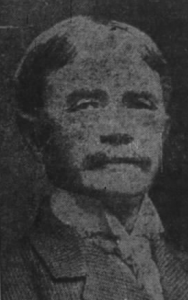
(May 19, 1835-Feb. 5, 1917). Born in Henry County, Indiana, Daniel Grubbs learned the printing business at the . He came to Indianapolis in 1857, studied law, and was admitted to the bar. Briefly a private in the Civil War, he later helped organize and served as secretary of two insurance companies in the city.
Elected alderman in 1878, he resigned that position in spring 1881, during his campaign for mayor. Regarding the condition of the as discreditable to the city, in a November 1881 message to the Common Council, Grubbs proposed to use a bequest by Stephen D. Tomlinson to build a new market that became known as . In his role as police court judge, Grubbs supported enforcement of the but criticized police raids of houses of ill-fame. Such raids, he argued, simply displaced prostitution from the better-run houses to rooms throughout the city and increased the evil. Grubbs preferred that the police go after those landlords, many reputed to be “upstanding citizens,” who profited from the high rents paid by such houses.
Rather than stand for reelection, Grubbs moved to Parral, Mexico, immediately following his term to manage the mining and banking interests of his wife’s family, retiring from active business in 1903. He died at Harrodsburg, Kentucky, his residence for a number of years.

Help improve this entry
Contribute information, offer corrections, suggest images.
You can also recommend new entries related to this topic.